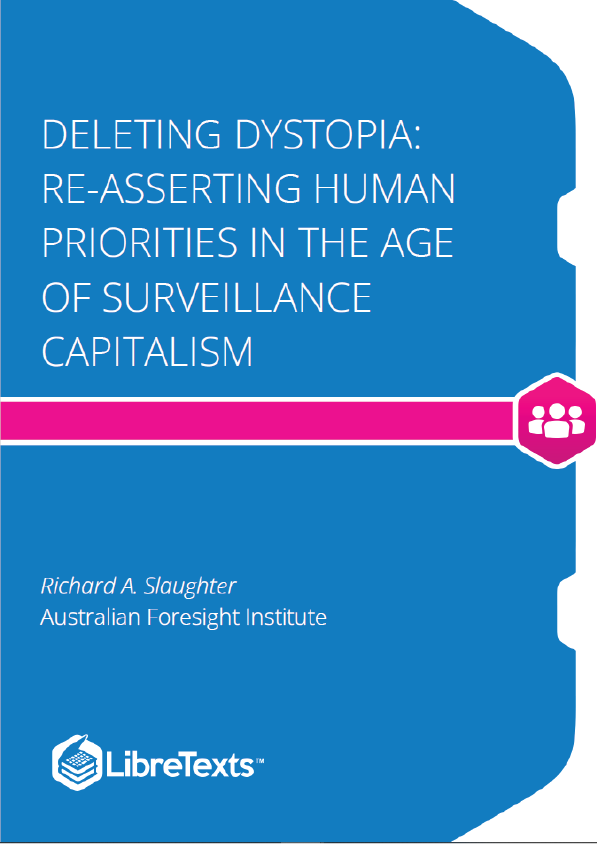Deleting Dystopia confirms that the existential threats posed by the misuse of advanced digital technologies are real. But, in place of apathy and fatalism, Slaughter explores ways of understanding the threat, conceptualizing solutions and identifying strategies that lead away from digital authoritarian futures towards those funded on humanly viable values and practices.
Headlines such as those above demonstrate as well as any that the IT revolution brings with it a series of challenges that societies are ill prepared to face. While surprisingly large numbers of people unthinkingly renounce such of their privacy as remains for trifles, the idealistic hopes of early pioneers and freedom-loving ‘netizens’ remain largely unfulfilled. Benign notions such as ‘cyber democracy’ and the ‘information superhighway’ have all but disappeared, replaced by a growing sense of uncertainty, disillusion and fear of unknown consequences. For many the digital realm has become an elusive and obscure ‘nowhere place’ whose shadowy operations lie beyond the boundaries of human perception. A few vast corporations, and those with privileged access to their services, appear to have almost unlimited influence both for good and for ill. To capture attention and encourage wide immediate usage it’s the presumed utility of emerging technologies that’s highlighted rather than the radical ambiguity that attends their longer-term use. The implications of this ambiguity need to be more thoroughly understood if positive measures to reduce or eliminate its negative consequences are to be undertaken.
Those driving the IT revolution claim new benefits and highlight examples of successful implementation – email, tablets, health innovations and so on. Yet, despite such obvious successes, many IT practices are powerfully disposed in favour of the interests of agencies, corporations, innovators and entrepreneurs, with little evidence that these actors are motivated by positive values that promote public interest. So concerns that the overall effect of the IT revolution could herald the onset of a humanly oppressive technological dystopia remain remarkably durable – if not always spelled out in detail (Harari, 2015). Consequently no amount of saturation marketing will cancel out the ‘dark’ side of the IT revolution or allow it to be wished out of existence. The collective subconscious has access to truths, archetypes, dimensions of reality, denied to, and by, high-tech gurus (Slaughter, 2012, 2015a). It knows, for example, that intangible entities can reach out and destroy centrifuges in a distant country, disrupt civil infrastructure, undermine organised life across the globe. It knows that private bank accounts can be drained before their owners realise what has happened. It also knows that women are attacked and sometimes killed by former partners who’ve tracked their movements, their conversations, using smart phones and social media. Which leaves out a host of phishing attempts, scams, identity theft and other on-line abuses (Glenny 2011; Williams, 2015).
This enquiry first seeks to account for the underlying polarity outlined above between the promoters of high-tech ‘solutions’ and those who view the onset of the IT revolution from a more critical perspective. Since the literature is huge and growing it draws on an indicative sample of literature including informed (or ‘quality’) journalism produced over the last decade or so. It begins by outlining key assumptions (including that technology is ‘not merely stuff” and ‘new technologies are ambiguous’). It provides a critical review of several key works and identifies some emerging themes. It then provides a critique of three case studies: the Internet of Things (IoT), autonomous vehicles (AV) and the Silicon Valley itself. It draws on Integral futures methods to provide a brief account of some internal aspects of the Internet giants. It finally concludes that a variety of actions, decisions and policies are needed to reduce high-tech ambiguity and expand social equity. Such ‘conclusions’ should be regarded as starting points for further enquiry. Turning the IT revolution toward more productive and egalitarian ends will require dedicated social efforts that are sustained over the longer term.











